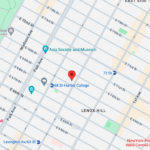Meniscus tears rarely heal by themselves, but not all meniscus tears require surgery. Your treatment will depend on the cause and the pattern of the tear. If a tear is stable or caused by arthritis, for example, then a combination of rest, icing, compression, regular elevation of the affected knee, and physical therapy may alleviate the pain without the need for surgery.
Most orthopedic specialists initially recommend a non-invasive course of treatment, especially for older and less active patients. If the tear is large, displaced, causing buckling or locking, or if conservative treatment has not helped, then minimally invasive arthroscopic surgery is recommended.
Meniscus Tear Recovery Time Without Treatment
Non-surgical treatments for meniscus tears can begin to alleviate pain and swelling in as little as a week. With a balanced physical therapy program, patients can experience relief from the pain of minor to moderate tears in as little as five weeks, though patients should continue to rebuild their strength and stamina for another several weeks before fully resuming any strenuous activities.
If symptoms do not improve within six weeks of physical therapy, your orthopedic specialist may recommend that you pursue arthroscopic surgery to alleviate the pain.
Meniscus Surgery
Meniscus surgery is performed arthroscopically; the surgeon operates through two tiny pinhole incisions into the knee. The ultimate course of action, however, depends on the site and extent of the tear.
If there is a complex, radial, or degenerative tear in the white zone of the meniscus, where there is no blood supply, then the torn fragment is trimmed and the remainder of the meniscus is smoothed to prevent further tearing. Tears close to the red zone of the meniscus (where the blood supply is) are usually repaired in order to preserve the meniscus, which acts to protect the lining of the bones from wearing away and developing premature athritis. Typically, an athroscopic meniscectomy (trimming of the meniscus) is a 30-minute procedure. A repair may take 20 to 30 minutes longer.
What to Expect After Meniscus Surgery
As with any knee surgery, there will be some pain and swelling for the first several days after athroscopic meniscus surgery, but these symptoms are usually well-managed with a few days of icing and medication. During surgery, the knee is filled with water so that your surgeon can see the structures clearly, so your knee may feel swollen for a few days after arthroscopic surgery.
Usually, you will be able to go home walking and using a cane for the first day or two. If a repair is performed, then you will likely have a brace to protect the repair. If no repair is warranted, then you will only have some light bandaging that can be removed within two days. If repaired successfully, the torn piece of meniscus connects and heals back to the peripheral soft tissue.
If you have a desk job which does not require heavy labor, then you will likely be able to return to work within two or three days. If your job involves heavy lifting or climbing, then it may take a few weeks to return. By the second or third day, most people are able to go about their normal daily activities. Still, it is vital that a full course of physical therapy is completed to regain full range of motion and strength.
Start your journey to better health today
A meniscus tear doesn’t have to halt your lifestyle. The expert orthopedists at New York Bone & Joint Specialists offer the latest in treatment methods to reduce your ongoing pain. Book today.
Torn Meniscus: FAQs
What is the standard torn meniscus recovery time?
Recovery time for a meniscus tear varies depending on your personal circumstances. However, generally speaking, the recovery process can look something like this:
Minor Tears
Minor tears can heal within 4 – 8 weeks with adequate rest, ice, and compression.
Major Tears
Major tears often require minor surgery to start the healing process. Post-surgery recovery can last from 6 – 12 weeks with adequate rest and support.
What are the differences between a meniscus tear vs mcl tear?
Though both are located around the knee, the meniscus and the medial collateral ligament (MCL) are not the same. The meniscus is made up of two cartilage pads, while the MCL is a ligament. A meniscus tear involves a rip in one of the pads and is usually caused by prolonged wear and tear. An MCL injury, meanwhile, is a tearing of the ligament often caused by sudden twisting, turning, or falling.
What is a bucket handle meniscus tear?
A bucket handle meniscus tear is a rare form of meniscus tear injury in which the pad rips and twists inwards, resembling the handle of a bucket.
Can a meniscus tear heal on its own?
Some meniscus tears can heal on their own, depending on the severity of the injury. Minor tears will often heal over the course of a few months with rest and adequate support. Major tears usually require surgery to correct the injury, and healing can take several months to half a year.
How do I find a meniscus tear doctor near me?
Finding a good meniscus repair doctor near you involves researching nearby specialists. Be sure to read previous patient reviews, look up particular doctors’ accreditations and training, and consider where you can afford and how easy it’ll be to reach the practice for you.



